Samantha Fish & Jesse Dayton Interview: Fire and Passion
Samantha Fish & Jesse Dayton interviewed by Paul Rigg
While on tour in Europe, we trade stories with Samantha Fish and Jesse Dayton and talk about their latest record, Death Wish Blues.
This interview was originally conducted by Paul Rigg for Planet Guitar.
Fish and Dayton: Fire and Passion
It is early morning on a cool mid-March day in Amsterdam, but chart-topping blues guitarist Samantha Fish and genre-busting sensation Jesse Dayton, are keen to talk with Gearnews about their brand new album, their star collaborations, and why one particular cat might make a make a cool contribution on their stage…
Gearnews: Thank you, Samantha and Jesse, for finding time in your busy touring schedule to chat to us about your new record, ‘Death Wish Blues’, but before we focus on that, I’d like to kick off with a background question: you first met in Kansas City, at Knuckleheads Saloon, over a decade ago, but then reconnected more recently in New Orleans: what made that the right moment for your collaboration?
Samantha Fish: I don’t know. This project has been swirling round in my camp for a couple of years, a collaborative record with this kind of vibe and style, and I saw Jesse last year and it just dawned on me that he’d be the perfect guy, so we started chipping away at writing songs. We had a natural chemistry, and both loved the same kind of music, so it just worked really well.
Death Wish Blues
GN: I was immediately hooked when I listened to the record because it’s full of energy, humour, and great grooves. Was it enjoyable to make?
Jesse Dayton: It was so much fun; it happened really fast. We both went up to New York and Sam and I started writing songs together and then Jon Spencer got involved, who became such an integral part of the sound, and we just had a really great time together. I think it shows on the record; it’s not just business as usual, you can hear it is close to our hearts.
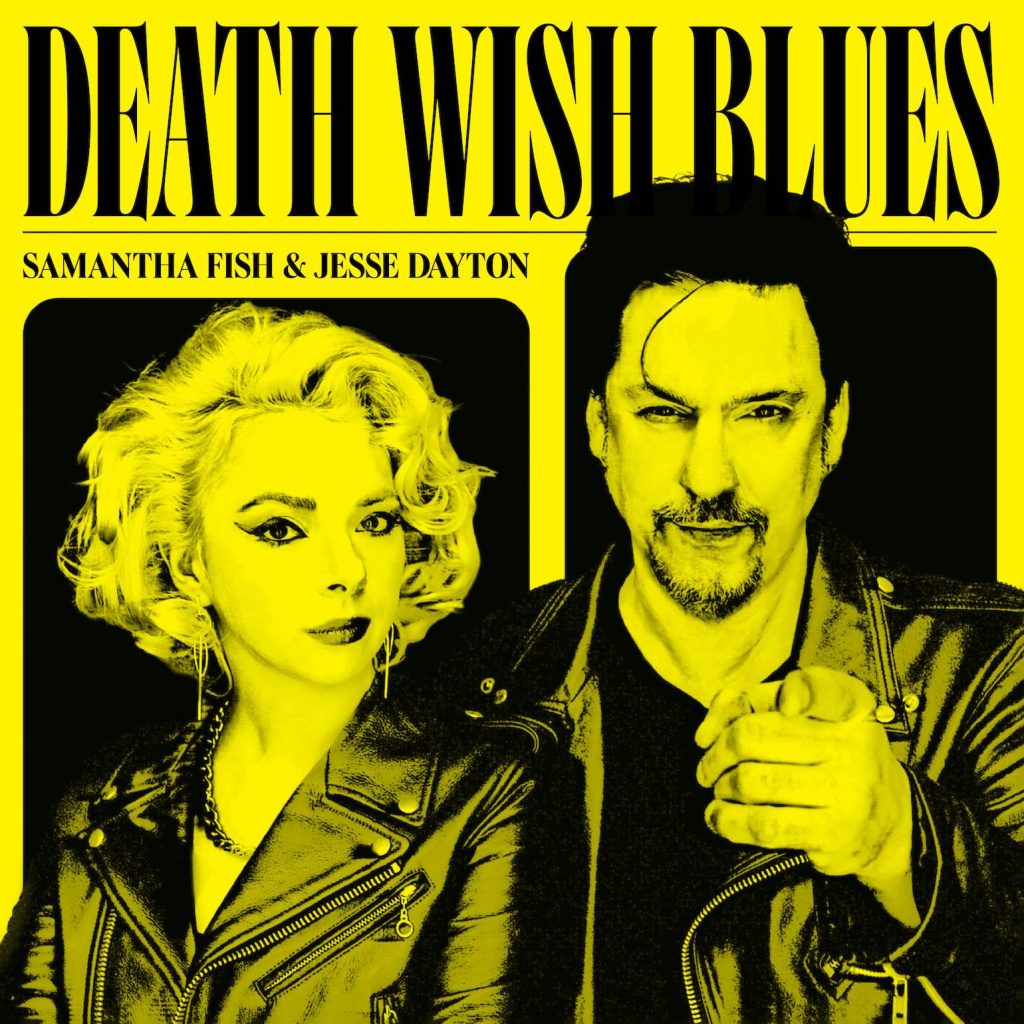
GN: You recorded it at Applehead Recording & Production in Woodstock, a studio situated on a 17-acre farm once home to The Band’s Rick Danko, and chose the man who led The Jon Spencer Blues Explosion to produce – do you feel that this ‘pedigree’ leaves a mark on your work?
Samantha Fish: 100%. It is ‘a moment in time captured’ when you are making a record. We were there for over a week. You’re hanging out, and then going back into the studio, and you know that the history is there; it can’t help but leave an impression. And then I have been a fan of Jon since I was a teenager, when he was working with RL [Burnside], and bringing together different sounds and genres, so we just thought that he’d be great for what we were trying to do.


Working with Jon Spencer
JD: Yes, every day was an adventure together in the studio. I knew we were doing something different because the drummer didn’t sound like ‘Whipper’ Layton or John Bonham, and the guitarists weren’t overtly Stevie Ray Vaughan, or this kind of ‘Whitewood blues thing’, and the songs that Sam and I were writing were rock songs with a heavy blues influence. It all just felt new and fresh, with Jon as captain at the head of the ship.
GN: There are many interesting aspects to the record, but I would like to ask about one of the first tunes you wrote together, the album-opener ‘Death Wish’: how did that song come about?
JD: Sam and I started sending voice mails to each other via our phones, and one idea went ‘Nur, nur, nur…’ [hums refrain] and I was like ‘ooh!’ The thing with Sam is she is just hyper-melody conscious, which is great for me because I’ve always been this Dylan-like, story-telling guy from the Americana tradition, so together we make these songs that have a defined melody, which was great; totally inspiring.
“I’ve always been this Dylan-like, story-telling guy…”
When we wrote it, I’d been watching old film noir and crime movies and it sounded like an empowering thing for Sam to sing, you know where she ‘flips the script’ on a guy who is on the run. Hopefully, people will pick up on that, but mostly I think they’ll just be humming Sam’s melody.
GN: …and Sam – where did you get all that attitude to sing it?
SF: It’s funny because I’ve never worked with a producer who does vocals in the way Jon does; he is like an acting coach. The performance is always important, and many producers look for that clean note, but he really focused on where you were coming from when you were singing; the character that you were embodying. So, he would focus on inflection, for example, and delivering with attitude. And him helping us channel the characters in the songs just made for a really personality-driven album.
Recording Dangerous People
GN: I was intrigued that at one point Jon had you banging on beer cans gathered from the backyard on ‘Dangerous People’ – was this a ‘Tom Waits’ moment’?
SF: Yes, definitely! I was saying to Jon that we’ve got to work with some found instruments and we were talking about having a loop to this song…
JD: … it was so crazy, I walked into the studio with my coffee to see Sam surrounded by pots and pans and all this stuff – and a lot of times that doesn’t work but […] Jon demanded that we follow it through, and it worked out great. I hope we aren’t incredibly wrong …
SF: No, I know we’re not, because now I listen to the record and think ‘what were we thinking; this is a great song!’ And live… I don’t know how we’re going to do it – we’re definitely not going to be going around the venue searching for pots and pans! [Laughs]
The process behind Supadupabad
GN: I’d also like to ask you about ‘Supadupabad’, which is a light-hearted piece of blues-funk and, as Jesse said, was “way outside our wheelhouse”…
JD: Well, I grew up listening to Isaac Hayes, and so had Sam, and she was turning me on to Melvin Bishop, and stuff that I’d never heard from the 70s. You know we are all late to the party on some cool stuff – we don’t come out of the womb knowing every nuance of music history, so a lot of this record is highly influenced by 70s’ Black music, which Jon Spencer has based his whole career on.
GN: For a change, I’d now like to give you an artist’s name and for you to say one anecdote – or perhaps just one word – that first comes to mind:
Johnny Cash?
JD: Spiritual Aura. I was working in the studio with him in 1997 and every time he walked into the recording studio the atoms and the energy within the room would change.
GN: Do you have a particular anecdote?
JD: Yes, the movie about him does no justice to the romance he had with June; he would walk up to her in front of the whole band and go: ‘I’ve missed you so much’, and kiss her like they were kids. It was romantic and beautiful.
Devon Allman?
SF: He’s fierce! I’ve known Devon a long time. In 2012 or 2013 he asked me to do some stuff on one of his records – the Tom Petty-Stevie Nicks’ song. I’ve watched him blossom; how he has really taken on the Allman family tradition in bringing everybody together. I’ve watched him do that for years and years and he is so good at it. It’s cool to see who he is now; it’s pretty powerful!
SF: He is a badass, he’s just amazing. Every time he gets on stage every other guitar player just drops their instrument and watches him, because he is incredible. What he does with the guitar is different to everybody else – the way he plays, the way he performs.
I have a funny anecdote from Memphis, around about the time I recorded Kill or Be Kind [2019]. I went to his show, and he called me up from the audience and handed me this guitar, which was the other way around, and I played whatever, and then handed the guitar to Kingfish [Christone Ingram] before I returned to the audience.
And then Ory Naftaly from Southern Avenue said ‘what happened to you just now was like my worse nightmare’ [‘it was upside down, right?’ intervenes Jesse, laughing]. It was fine – I saw the videos afterwards – but I remember thinking, ‘I would have happily watched the others play guitar!’

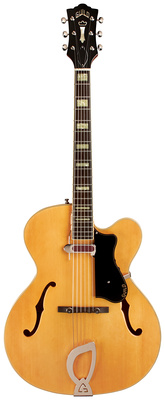
On the current Guitar Resurgence
GN: Great story, thank you! Turning now to guitar questions, Jesse you recently said: “I love that we’re starting to see the resurgence of rock guitar.” Others argue that the guitar’s moment in musical history has gone – what would you say to that?
JD: Well, I think there are a lot of disenfranchised rock fans out there right now who are not getting the goods, and they’re going back to listen to the heritage acts. I think it is making a resurgence in a way, whether it is the Black Keys or Jack White, or whoever, it’s starting to come back.
We see that on a business level too, the market share is growing – that’s why people are freaking out over Samantha, because she is giving them this raw guitar playing. For better or worse, legendary rock n roll towns, like Atlanta, are now overrun by urban music. I love old-school rap, it is almost like punk rock, you know, but now I feel a resurgence as labels are starting to sign more rock acts. To me it’s exciting.
GN: Your guitar playing has been described as “fiery and passionate.” How do you get that intensity in your playing?
SF: You just have to feel it. The guitar is like an extension of my voice; an extension of everything I’m doing. It is about being emotive, bending the string, the vibrato; it’s not about ‘da, da, da…’ Sometimes it comes out a little muddy, and sometimes exactly how I want it; but you just have to care, and want to say something important.

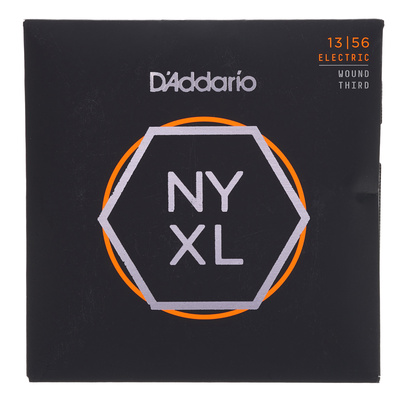
Touring in Italy
GN: We have a lot of Italian fans, have either of you had any experience touring in Italy?
SF: Yes. I’ve had a blast there. We were there in the summer, and it was, like, 114 degrees in the daytime and people still came out, so that should say something. I found the Italian fans really engaged, passionate and supportive. I was very, very, honoured.
JD: I love Italians. When I go there it is like I have a banjo in my mouth sometimes, because I’m from Texas, so I’ve learned that if I can keep my mouth shut, I can pass for a local, with the dark hair and the olive skin!
I’m a huge Ennio Morricone fan, I have had all his albums on vinyl since I was a kid. I’m a big fan of Italian filmmakers. I’ve got Italian motorcycles too, I’ve got a vintage Benelli! When you go to Italy you don’t just find a light switch, you get a light switch that has got art on it. Everything they do is from an art perspective, and that’s a beautiful thing.
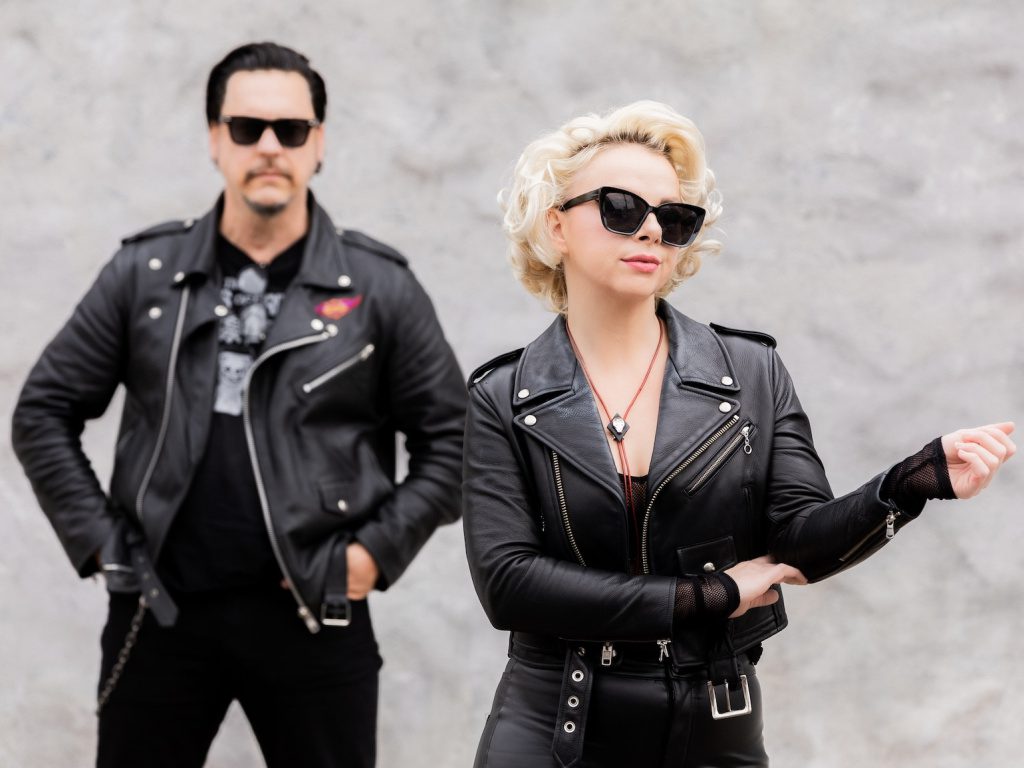
Influences
GN: Sam, you’ve said you love Bowie, the Stones, Prince, and Led Zeppelin – who are the new bands you are listening to?
SF: I liked Jack White’s two albums he put out last year, they’re really interesting, but what I do when I’m making an album is to go back and try to find new music from that era that I haven’t yet heard. I’m in the contemporary blues scene so I see a lot of guys there who blow me away. I’m always looking out for new talent.
GN: And you, Jesse?
JD: There’s this guy named Eric Johanson [Samantha intervenes: ‘there you go!’] who is going to be opening some shows for us. He’s this kid who came up through the New Orleans ranks playing all the usual dive bars, he’s been opening a lot for Samantha, and I’ve just produced his record that is going to be out at some point. He’s got great songs – you know you can’t swing a dead cat in bars in New Orleans without hitting a great guitar player, but he’s got catchy songs; I’m excited about it.

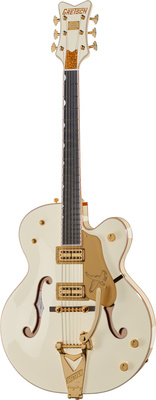
Playing International Festivals
GN: You’ve played at a lot of festivals around the world. How do you create a memorable show?
SF: Every day is a new challenge with a new audience […] so you build a show around that. I like to come out swinging. A show has peaks and valleys, and it is about taking them on a trip, but you’ve got to first hook the audience to enable them to take the trip with you.
When it’s our show, and people have bought a ticket, they know who they are coming to see, they are ready to take the trip; but at a festival people often don’t know your music, and they’re giving you a chance. So, you have to design the show to really capture these guys, and then take them on this ride; I love building shows.
GN: One fun question, as we close: If you could have any animal play guitar in a band with you, which animal would you choose and why?
SF: [Laughs] Well it would definitely be my cat, Mo, because I’d love to bring him on the road. I think he’d be a great guitar player too because he’s very soulful and sweet.
JD: He’d be like a jazz guy, there’s a reason why they call us cats, you know!
I’d go with a black Labrador, because I’ve had one since I was a kid; I’ve got one at home now, named Pearl. Of course, we’re going to say our pets, it would be more interesting to say a polar bear or tiger but, you know, we’re both missing our ‘fur faces’!


Future Projects?
GN: What plans do you have in 2023?
JD: We are touring and from the response we are getting from the record this could go on for a while. It’s great man, we are just both super-grateful and excited about the way the record is being received.
SF: We both have projects on the horizon that were pre-planned, but we might just go back to the studio, you never know. The road is long!
Gearnews thanks Samantha Fish and Jesse Dayton for talking to us today. We think Death Wish Blues is a record from the heart and is well worth checking out. ‘Thanks man!’ says Jesse with a smile.
More about Samantha Fish & Jesse Dayton:
- Samantha Fish Official Page
- Jesse Dayton Official Page
- More Interviews
*Note: This article contains affiliate links that help us fund our site. Don’t worry: the price for you always stays the same! If you buy something through these links, we will receive a small commission. Thank you for your support!
One response to “Samantha Fish & Jesse Dayton Interview: Fire and Passion”

 4,3 / 5,0 |
4,3 / 5,0 | 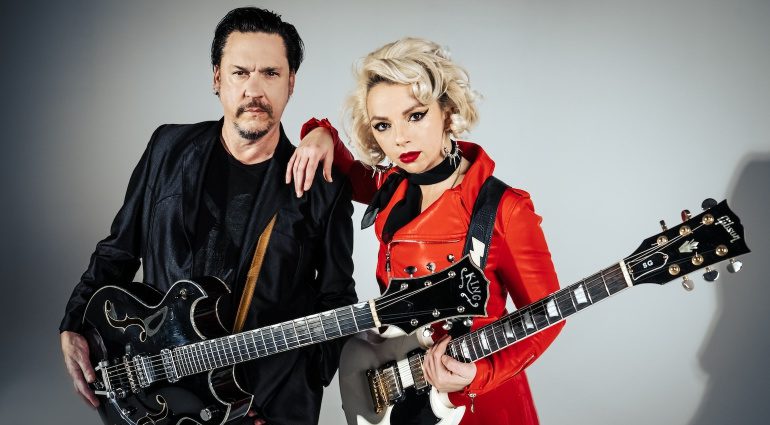


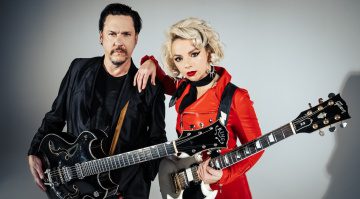

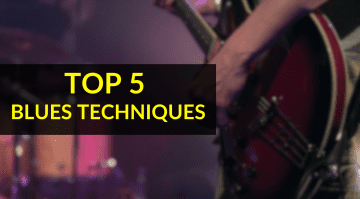
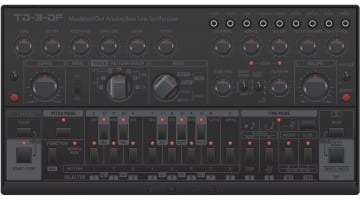
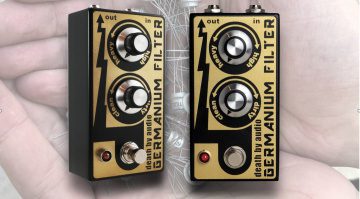
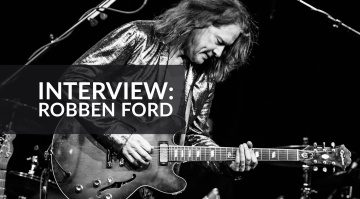

Thanks for publishing this interview – I stumbled across Samantha Fish a year or so ago and she is amazing, so authentic with a fab voice and tone, and her slide playing on her tin can guitar is particularly cool. Her album with Jesse Dayton here is highly recommended. Also both Eric Gales and Kingfish are fabulous guitarists so I’d’ve loved to have seen the gig she mentions when Eric pulled her out of the crowd. Wow!